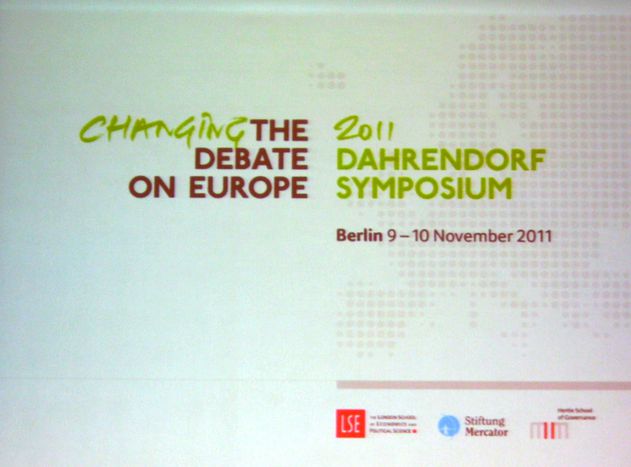
The unfair evaluation of Europe’s common foreign policy
Published on
From down-to-earth social problems, the Dahrendorf Symposium, held last week in Berlin, took a lift to the atmospheric altitude of Europe’s foreign policy. Discussing first “Europe as a social space”, addressing minority problems, it switched to “Global Europe”, addressing, well…, what exactly? European Foreign Policy seems to be a linkage of major failures.
Europe did not push through a comprehensive climate change agreement; it did not find common positions either on Iraq in 2003 or on Libya in 2011, and had to accept the ruin of its nuclear non-proliferation strategy with North Korea getting the bomb and Iran being close to it.
Of course there is some kind of a European Foreign policy. In fact, it is even visible in media coverage, Thomas Risse from Freie Universität Berlin pointed out. And Europe has some influence. Strangely enough, this influence is stronger often in those areas, in which its influence is not intentionally implemented. International Courts, for example, model the European Court of Justice, and other regional organizations study the EU very closely to copy elements they like.
Later that day, Wolfgang Ischinger, German ex-ambassador and now Chairman of the Munich Security Conference, cited Donald Rumsfeld, the former US Secretary of Defense: “If you can’t solve the problem – enlarge it, put it in a wider context.” That idea might be useful for the discussion on European Foreign Policy as well. Even if chances remain low to negotiate some effective international agreement, say, on climate change, chances might be higher if Europeans negotiate together then if they were to negotiate alone. The same goes for most other policies.
Yet even when it comes to the common foreign policy, expectations might easily fly high, and, indeed, too high. A common European foreign policy might be more effective then 27 national foreign policies. However, other international actors still have to be persuaded. So it might be fairer not to judge European foreign policy in the simple terms of success or failure and more in respect to what results probably might have come out of a given situation without a common policy (in the making). Additionally, National states as well often implement non-coherent foreign policies (in conflict with their trade- or development policies, for example), change them over time, contest them domestically, and react too slowly to new circumstances (have a look at the Arab Spring). That said, EU-foreign policy might still benefit from a more coherent strategy, less quarrels and quicker decision-making. But it doesn’t look as catastrophic as it seems on first glance.



